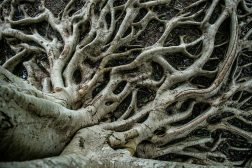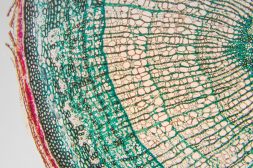Definition
noun, plural: protoderms
(botany) The primary meristem from where the epidermis of the plant are derived
Supplement
A meristem (meristematic tissue) is a plant tissue that is made up of undifferentiated, actively dividing cells. Its fundamental function is growth. Some of the cells continue to give rise to new cells by cell division while others develop into differentiated cells comprising a particular permanent tissue (e.g. epidermis, trichomes, phellem, vascular tissues, etc.). There are two types of meristems based on the type of growth they are associated with. They are the primary and the secondary meristems. The primary meristem is the type of meristem responsible for the primary growth of the plant. It accounts for the increase in length or height. An example of a primary meristem is the apical meristem. It is a meristem that is located at the tips or apices of a plant. Thus, it is found particularly in the root apex and the shoot apex. In vascular plants, the apical meristem may develop into the protoderm, the procambium, and the ground meristem. The meristem that gives rise to epidermis, in particular, is referred to as the protoderm. It is located around the outside of the stem.
Word origin: Greek prôtos (“first”) + dérma (“skin”)
Synonym(s):
- dermatogen
See also:


